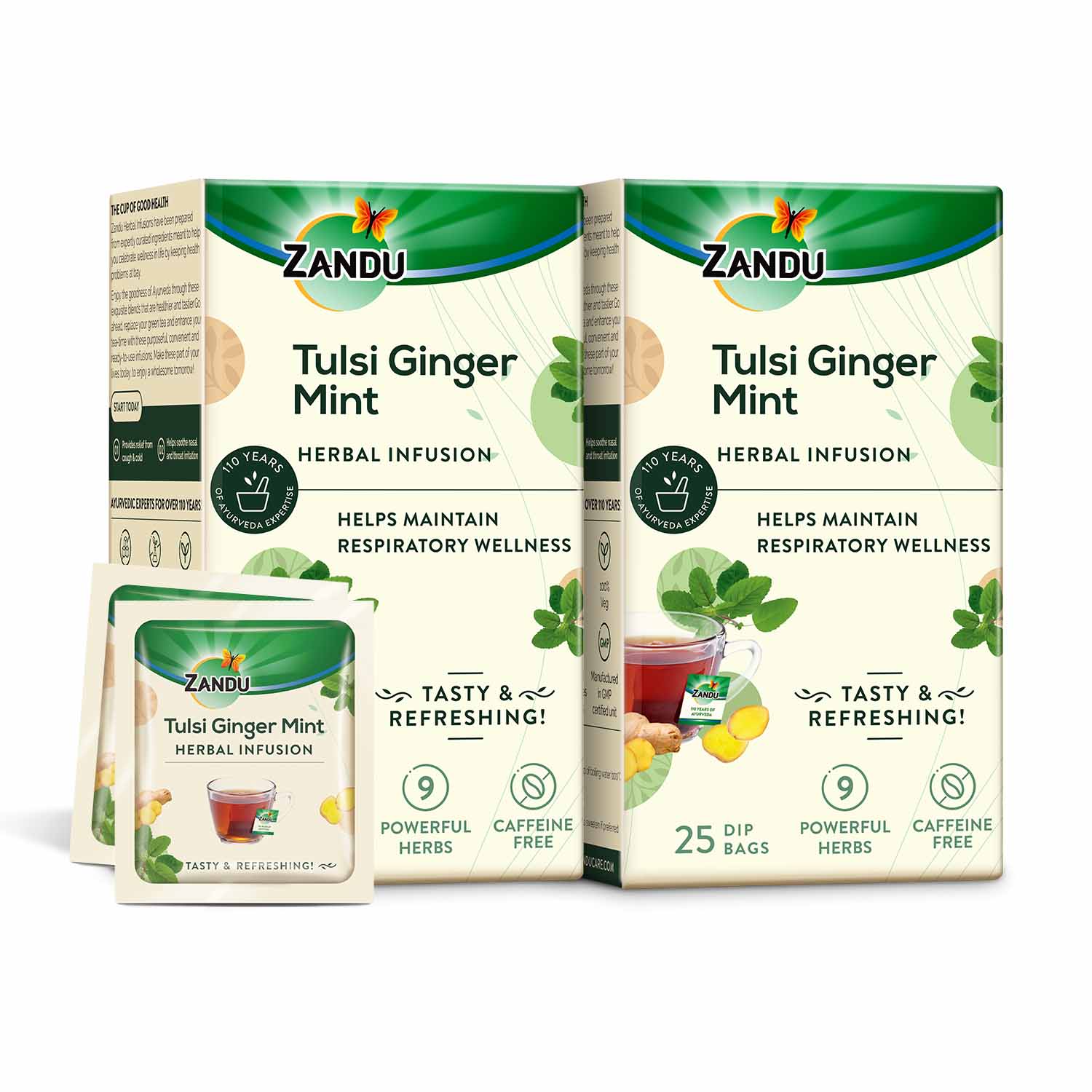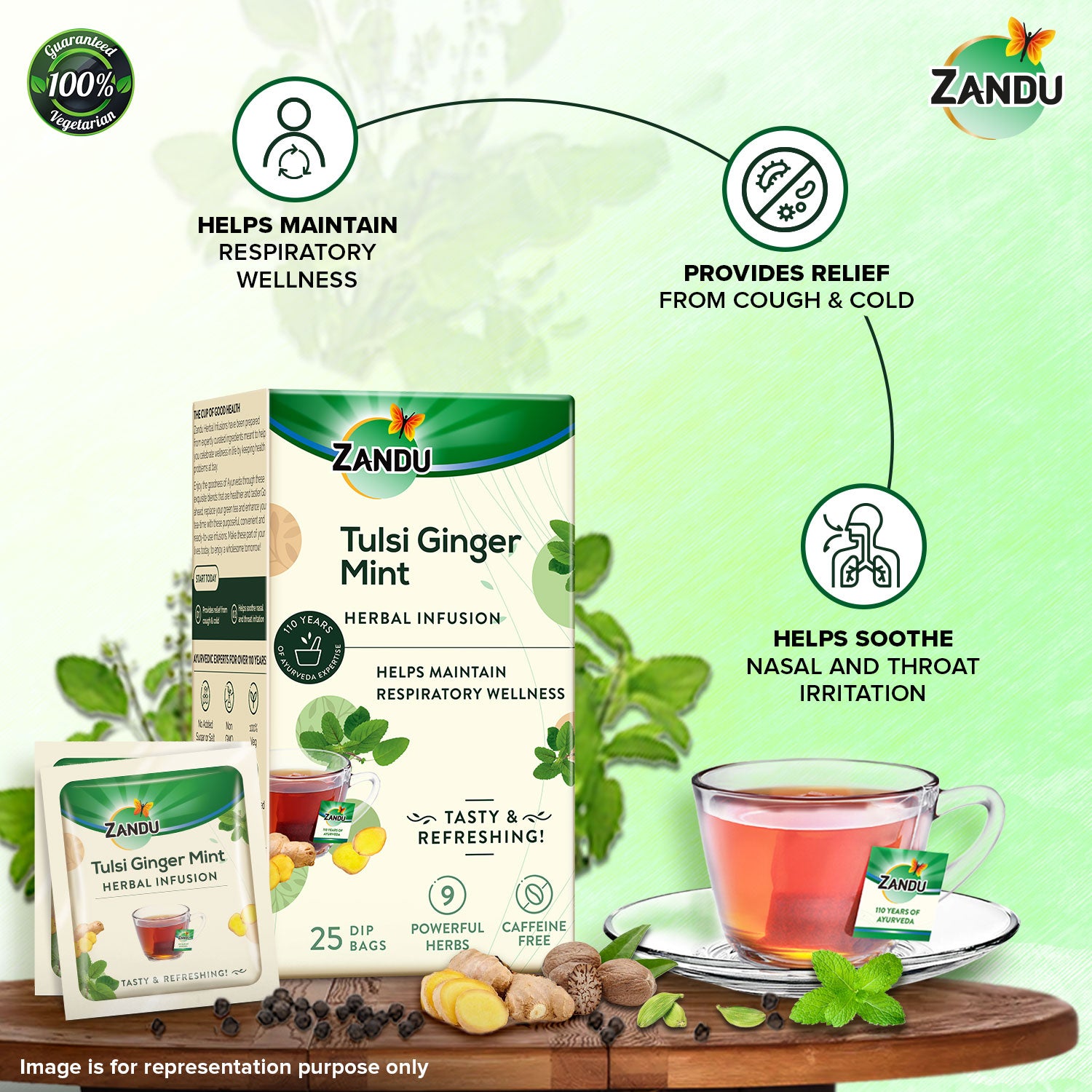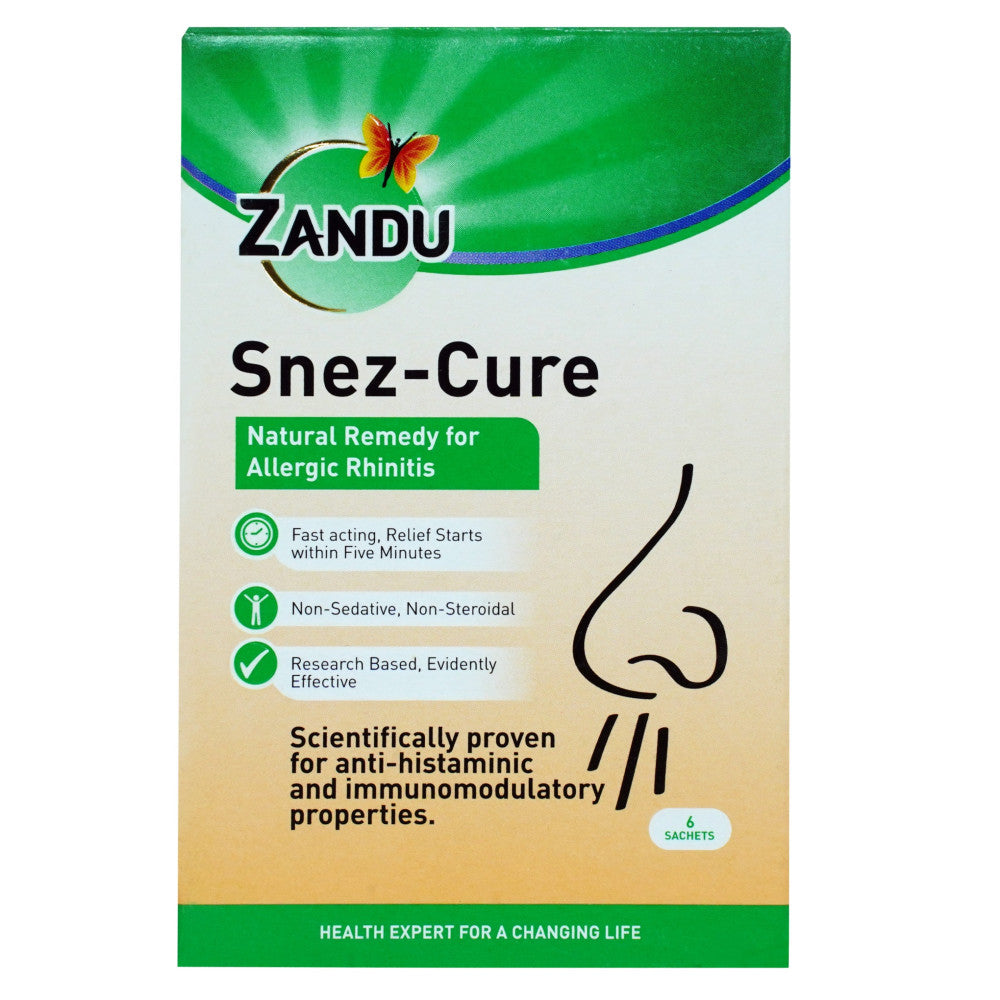Zandu Pure Triphala Capsules
Sale price
₹239
Regular price₹299 20% off
Zandu Tulsi Ginger Mint Tea - Cold & Cough Relief
Sale price
₹419
Regular price₹466 10% off
Zandu Neem Tablets
Sale price
₹180
Regular price₹200 10% off
Zandu Snez Cure for Allergies
Sale price
₹312
Regular price₹339 8% off
Zandu Turmeric Tablets for Immunity & Inflammation Relief (60 Tabs)
Sale price
₹160
Regular price₹200 20% off
Zandu Giloy Tablets
Sale price
₹180
Regular price₹200 10% off
Common symptoms of allergic rhinitis include sneezing, runny nose, nasal congestion, itchy or watery eyes, itchy nose, throat or palate, and coughing.
Allergic rhinitis should be treated with avoiding allergens, over-the-counter medications to reduce symptoms, and prescription medications if needed. Allergy immunotherapy may also be a viable option to reduce allergic symptoms long-term.
Among all the medicines, Snez Cure & Tulsi Drop are the most effective herbal products. Both of them contain natural ingredients that reduce inflammation, boost immunity, and support respiratory health.
Yes, several lifestyle changes can help reduce symptoms of allergic rhinitis. These include avoiding allergen exposure, washing bedding and clothing frequently, using air purifiers in the home, and limiting time spent outdoors during peak allergen times.
Ayurveda can effectively manage and alleviate the symptoms by focusing on holistic approaches like herbal remedies, lifestyle modifications, and dietary adjustments.
Allergic Rhinitis is primarily caused by the body's immune response to allergens like pollen, trees, grass, dust mites, etc. When exposed to these allergens, the immune system releases histamines, leading to symptoms such as sneezing, congestion, and itchy eyes.
Allergic Rhinitis is generally not considered a serious condition but can significantly impact one's quality of life. If left unmanaged, it may lead to complications like sinusitis or ear infections. Timely treatment, including Ayurvedic approaches, can help prevent these complications and improve overall well-being.
Ayurveda does not claim to cure Allergic Rhinitis but it provides a holistic approach to aid its symptoms and minimizing the frequency and severity of allergic reactions.
Zandu’s Snez Cure Ayurvedic medicine is the best for nasal-related issues, It is made with 100% natural herbs like Haritaki, Pippali, Amalaki, Sunthi, Maricha, Vibhitaki, Punarnava, Mandoor Bhasma. It can provide instant relief from nasal issues.
Tulshi contains important anti-inflammatory, antimicrobial, and immunomodulatory properties. It can be used in the treatment of allergic rhinitis as it boosts the body’s immunity and helps our immune system fight allergies.












